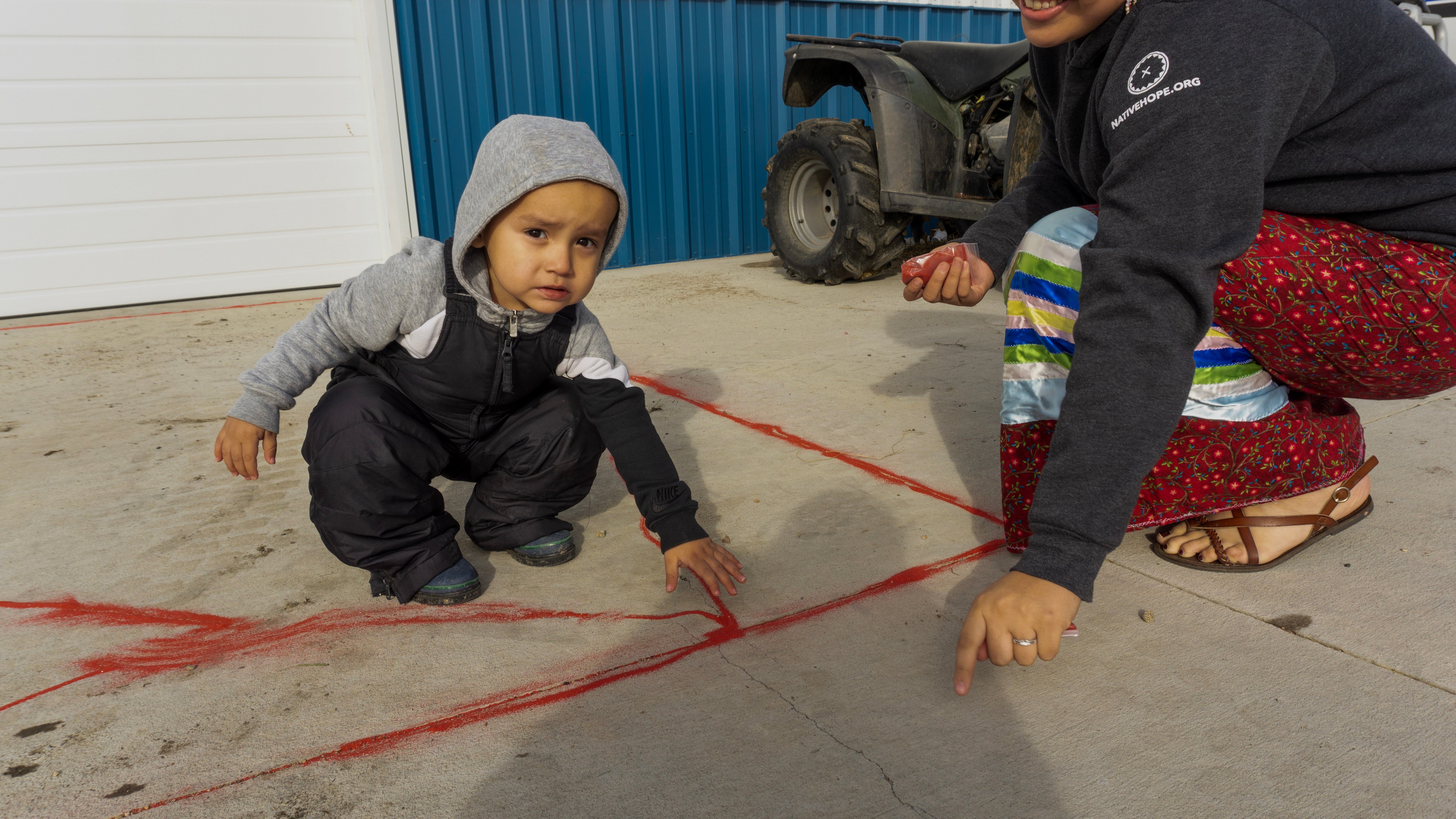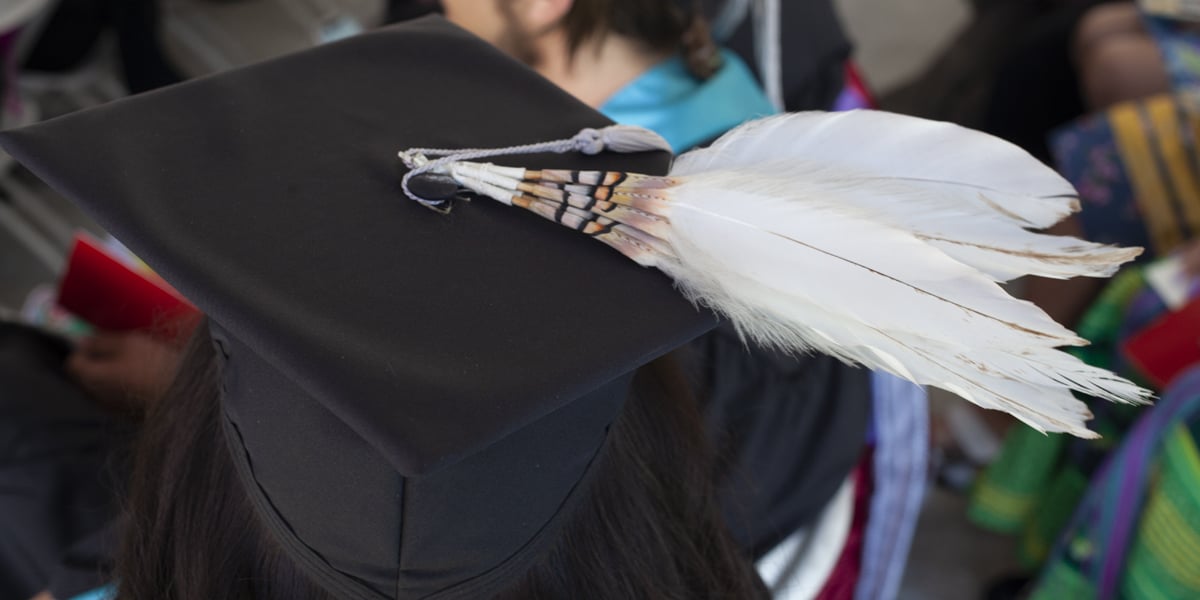Oct 13, 2016 | Native Hope with Trisha Burke
I don’t remember when I met him. Some people we meet, and others, we just know. Nyal Brings was one of those people whom everyone in our community just knew. He was known as “that runner who beat Billy Mills” or “that guy who drives that cool car.”
For me, it was more than his running prowess and good taste in cars that defined him. It was his proud stature, gentle nature, and welcoming smile. These qualities made this Lakota man from the Rosebud Indian Reservation a pillar for many people and for several communities in South Dakota.
From humble beginnings
Nyal Leroy (Brings Three White Horses) Brings was born in 1937 along the Little White River to Sam and Winona Brings. He and his three siblings were raised in the traditional manner on their family farm in a small house with no electricity or running water.
Lakota was his first language; in fact, he didn’t speak English until the government forced him to attend the Rosebud Boarding School at age nine where he was publicly ridiculed for speaking Lakota, so he had to learn English quickly.
Prior to boarding school, Nyal spoke only two English words: “yes” and “no.”
He told me of the time he went into town (White River) in the family wagon with his parents. He said, “We only went to town once in awhile because it was 12 miles from the farm.”
Nyal’s mother had taught her children to always answer “yes” when a white person spoke to them. On this day, Nyal walked along the street, and a group of older, white boys chased him.
Nyal recalled, “Apparently, they asked me if I wanted to fight. I said, ‘Yes,’ and they began beating me up. Then, they must have asked me if I had had enough. I said, ‘No,’ and they beat me up some more.” He ended the story with a wink, a laugh, and a grin.
I marveled at the humor with which he told this story of obvious racism. He didn’t once fault the boys for their attack on him. Nyal embraced his stumbling blocks as moments of growth and opportunities to show others his strengths.
Learning to cope without hope
When Nyal entered the Bureau of Indian Affairs Rosebud Boarding School, he was almost six feet tall at only nine years of age.
He was frustrated by the new language, new rules, new everything. But Nyal had three secret weapons: his mind, his legs, and his work ethic.
He was a quick learner. He was initially placed in the lower grade classroom, but with the help of his teacher and by the strength of his will, he quickly advanced to the fifth grade by the end of the school year. This was an enormous feat as classes were taught only in English.
“Sometimes there was abuse [for speaking Lakota],” explained Nyal. “If there was a big guy [a disciplinarian] coming, I took off and hung out [hid] until they forgot about me.” As before, Nyal ended this anecdote with a chuckle and big smile.
At age 11, Nyal realized his legs could carry him far. He started running because he had a lot of “down time.” He ran with the high school guys every day.
“I ran because I had nothing to do, and it made me feel good. I lapped a lot of runners [high schoolers], and they didn’t like it.” He giggled and said, “They were going to beat me up, so I had to slow down.”
As Nyal recounted these stories to me from his recliner, I remember thinking that I had never really seen Nyal as Native. He didn’t fit any stereotype that I had ever encountered. I thought Nyal was separate or privileged in some way.
He carried himself with such a quiet dignity, and he was unflappable.
Now, I know he was privileged to have grown up with a strong sense of identity that his parents had instilled in him from the moment he was born. His identity included a strong, Lakota work ethic.
As his education at the boarding school progressed into high school, Nyal went to school half days and worked the other half a day. The work was not easy—milking cows, shoveling coal, herding cattle, and fixing roads. Some kids were lucky enough to work in a bakery or a kitchen, but generally, not Nyal; he drew the physically challenging jobs.
“Sometimes favoritism played a role [in the jobs], so I had to do the hardest jobs,” he laughed. “I never complained.”
Nyal received his high school diploma from Todd County High School in Mission, South Dakota—a feat completed in seven and a half years of schooling.

The making of a champion
Because Nyal excelled academically and athletically, he dreamed of attending college. “By sixth grade,” he said, “I imagined myself going to Notre Dame.”
During his time at Todd County High School, Nyal earned several trips to the South Dakota State Track Meet where in his senior year he clenched the championship in both the 400 and 800 yard races. He was also a basketball and football star. Needless to say, Nyal was highly recruited by several colleges.
Eventually, he chose the University of South Dakota, USD. It just made sense. USD was closer to home and much more affordable. Nyal had earned a full-ride scholarship to become a Coyote.
This achievement fulfilled the hope that his parents had for him: he would go to college.
The transition
In the fall of 1956, Nyal set off for college in Vermillion, South Dakota.
“When I went to USD, I had $50 in my pocket, a shirt, jacket, tie, pair of slacks, and loafers,” recalled Nyal. “The coach promised to take care of me. I had six jobs. I washed dishes and tables, walked dogs, peeled potatoes, fried hamburger, and washed laundry for the athletes.”
This memory did not bring the familiar smile to Nyal’s face. The adjustment to college was a challenge for him, and he remembered facing loneliness and racial discrimination.
Fortunately, though, he made good friends who helped him overcome these challenges.
“My freshman year, one day I decided to go home [quit school]. I gassed up my car and drove by the gymnasium—I heard all the guys playing in there. So I put on my shoes and played with them. By the time we finished, I went back to school.” He added with a smirk and a chuckle, “I dropped out for about three hours.”
Nyal would go on to graduate from USD and become a University of South Dakota Hall of Fame inductee for his accomplishments on the track which included defeating Billy Mills, the 1964 10K Olympic champion.
Read part 2 and part 3 of Nyal's story in our blog.
Native Hope seeks to empower a generation of Native Americans by inspiring hope.






COMMENTS